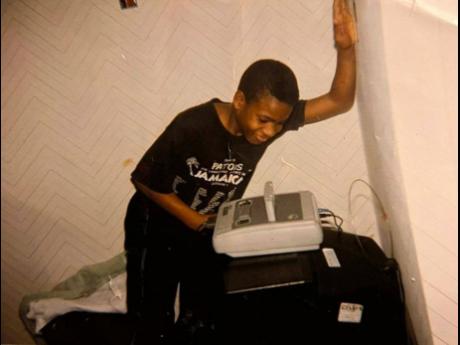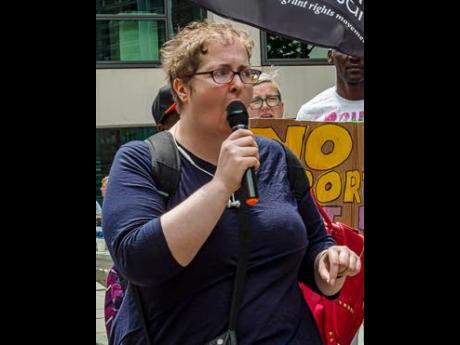Legal challenge, fundraiser launched after UK deports mentally ill man to Ja
Movement for Justice, a United Kingdom-based immigration action group, has launched a GoFundMe campaign to assist a man who was deported to Jamaica in May, despite ongoing mental health issues and having been diagnosed with paranoid schizophrenia.
Thirty-eight-year-old Eric Hall had migrated with relatives to the UK in the early 1990s at the age of 10 and was granted indefinite leave to remain.
He began having mental health difficulties and was diagnosed with paranoid schizophrenia in his teenage years and needed constant mental health support and intervention throughout early adulthood.
Karen Doyle, the Movement for Justice national organiser who established the funding campaign, said she first spoke with Hall three weeks before he was deported.
“It was clear from the beginning of our conversation that he was mentally unwell,” she said in the online appeal, which raked in £60 of a £2,000 target in its first week.
“He believed his detention was some big mistake, and [that] he would just be released.”
Doyle said that Hall became angry when she informed him of the likelihood of him being deported to Jamaica.
“ ... He told me never to call back again,” she recounts. “He thought I was part of the conspiracy against him because he could not comprehend or believe he was at risk of deportation.”
“It was clear to me that not only was this man very mentally unwell, but he could not act in his own best interests,” she added.
Hall racked up 28 convictions for 55 offences, which include theft, drugs, and possession of an offensive weapon, but family members claim that this was a result of his poor mental health.
They say that Hall has not been a threat to the wider society, having only been a danger to himself, and that he is still seriously vulnerable.
Before he was last detained in March, two months ahead of the deportation, Hall had been living in supported housing in east London.
Hall, a talented footballer and art lover during childhood, was among seven persons deported to the island from the UK in May.
He is now living in St Elizabeth with his elderly stepfather as his mother lives and works in London.
A legal team is now challenging Hall’s deportation in a suit against the UK Home Office, hoping it will lead to him being reunited with family in that country.
Relatives claim that neither Hall nor his lawyers were sent key paperwork on his impending deportation from the Home Office. The documents must be served legally within three days of someone’s forced departure.
‘HE’S A SICK BOY’
An assessment by the charity Medical Justice had also concluded that because of his paranoid schizophrenia, Hall should not have been detained and that he was not fit to fly.
The Home Office insists that foreign criminals and their legal representatives are served their removal directions in advance of flying, but campaigners say that because of Hall’s mental state, he would not have been able to appreciate the significance.
“It’s evident that the Home Office took advantage of his extreme vulnerability; he was a low-hanging fruit to bump up their deportation statistics, just as the Windrush generation was,” Doyle charged.
Errol Brown, Hall’s stepfather and caretaker in Jamaica, told the BBC that his stepson needs medication and comprehensive mental health support, which is not readily available in Jamaica. He also expressed concern about the crime rate locally.
“He’s sick. He’s a sick boy. I live with him and I know,” Brown said.
Since 2019, more than 100 Jamaicans have been deported from the United Kingdom to the island – 48 in 2019, then 37 in 2020, and 19 in 2021.
Critics have blasted the UK’s deportation policies, especially for its stance against persons who migrated to the country as minors and are being booted from the country for offences committed as adults, many times with no known close relatives in Jamaica or to those without resources to care for them.
The policy also came under sharp attack in the Windrush Scandal, which was ignited in 2018 after many migrants, including Jamaicans, who had gone to the UK to help it rebuild after World War II, were being evicted or denied access to basic services decades later after being told they were in the country illegally because of a lack of official paperwork.
The UK has since apologised for the action and launched a compensation scheme for those affected.


